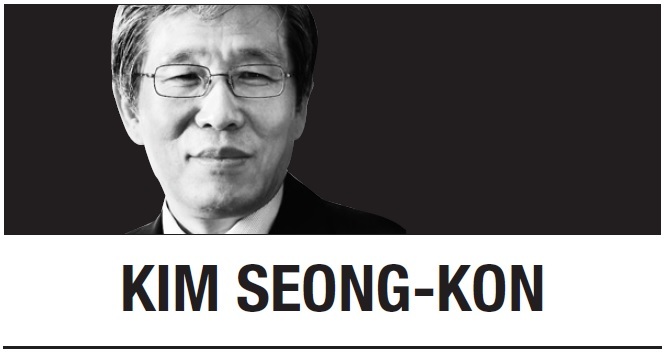
In 2021, young South Korean men too are disillusioned and angry with their present reality, in which they are forced to give up so many important things in life, such as finding a job, getting married, having children or owning a house, often due to the misguided policies and incompetence of their government. In their eyes, Korean society is unfair and the future is grim, and the country is guilty of neglecting young people who need assistance and care.
Korea’s young men are angry at the hypocrisy, deception and self-righteousness of their left-wing politicians who pretend that they embody justice, fairness and equality, when their actions tell the opposite story. They are also rightly angry with the conservatives whose sole concern is to preserve and savor their own rights and privileges. Young people are angry because they feel deceived and betrayed by society and the older generation that built it. They are disappointed in and frustrated by hypocritical politicians and a stifling social establishment. Like their British counterparts in the 1950s, Korea’s “Angry Young Men” of 2021 are moved to rage and rebellion in a cry for political reform and social change.
According to an internet dictionary, in the 1950s, the issues for the British Angry Young Men were “impatience with the status quo, refusal to be co-opted by a bankrupt society, (and) an instinctive solidarity with the lower classes.” The same thing could be said for the Angry Young Men in 2021 Korea, except for the “solidarity with the lower classes” part. In Korea, it is rather a solidarity within the younger generation -- called the MZ Generation, which stands for “Millennials and Generation Z.” Millennials, also known as Generation Y, were born from 1981-1996 and members of Generation Z were born from 1997-2012. Despite the differences in age, the two generations have one thing in common: Both are disillusioned with their government and society, which they think have ruined their otherwise bright future.
The recent election of 36-year-old Lee Jun-seok as chair of the People Power Party manifested the anger of young Koreans who were disappointed in and fed up with both conservatives and radicals belonging to the older generation. People call it “Lee Jun-seok syndrome” and believe that he will bring a new consciousness to Korean society, which suits the rapidly and radically changing world.
To alter consciousness requires the sloughing off of old skin to get a new skin. It is a painful procedure, and yet it is a prerequisite to a new life. British novelist D.H. Lawrence once said, “To open out a new wide area of consciousness means to slough the old consciousness. The old consciousness has become a tight-fitting prison to us, in which we are going rotten. You can’t have a new, easy skin before you sloughed the old, tight skin.”
People expect the young Harvard-educated leader to slough the old skin of the opposition party and grow a new skin. Lee assured us that he would play a pivotal role in making Korean society more of a “salad bowl” that allows diversity and uniqueness, rather than a “melting pot” that melts everything into one and the same. In addition, Lee should also pursue something like the Rainbow Coalition, an idea popularized by Fred Hampton in the late 1960s that transcends the gravity of the either/or mentality to accomplish harmony in diversity like a rainbow.
In the United Kingdom, young writers were angry at their hypocritical and inept society, thereby producing monumental literary works such as John Osborne’s “Look Back in Anger” and Alan Sillitoe’s “The Loneliness of the Long-Distance Runner.” Strangely, however, young Korean writers do not seem to be angry at their society per se, more the political establishment; there has been no similar literary movement in Korea yet. Instead, ordinary young people in their 20s and 30s are simply angry.
We hope the “Angry Young Men” in 2021 Korea can put an end to Korea’s chronic diseases for good, such as factional brawls and antagonizing those who are ideologically different from us. We also hope that they can heal our psychic wounds inflicted by the politicians who have torn our nation apart. We want Korean young people not just angry, but to prove their worthiness by boldly demolishing the current monochromatic community and to build a new colorful society in the spirit of the Rainbow Coalition.
Kim Seong-kon
Kim Seong-kon is a professor emeritus of English at Seoul National University and a visiting scholar at Dartmouth College. The views expressed here are his own. -- Ed.
-
Articles by Korea Herald









![[KH Explains] How should Korea adjust its trade defenses against Chinese EVs?](http://res.heraldm.com/phpwas/restmb_idxmake.php?idx=644&simg=/content/image/2024/04/15/20240415050562_0.jpg&u=20240415144419)










